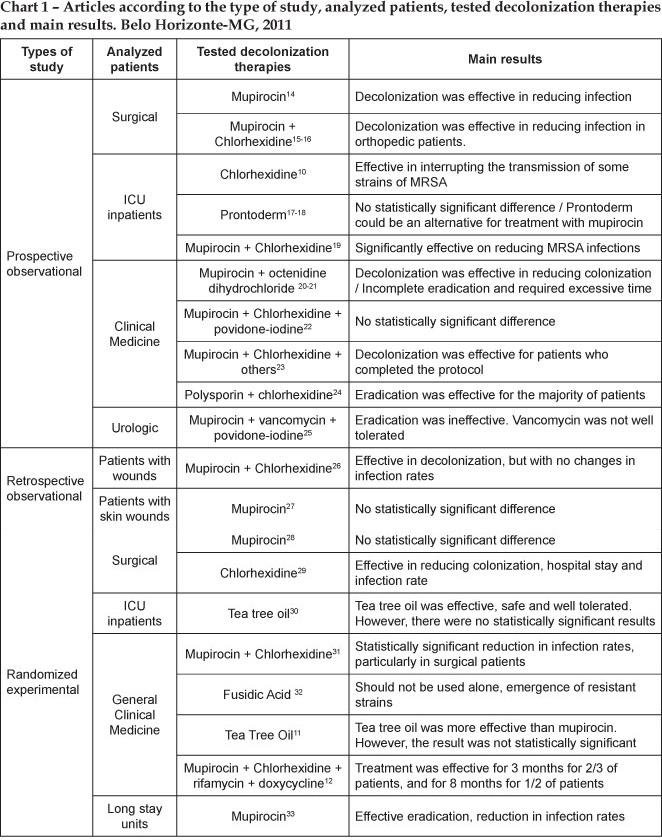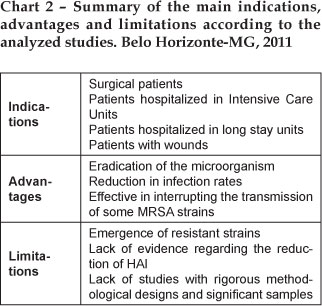The objective of this article was to establish the main indications, advantages and limitations of the decolonization of patients with Staphylococcus aureus. An integrative literature review was performed on the LILACS, MEDLINE, Science Direct, SCOPUS and Isi Web of Knowledge databases for articles published after 1999. The main indications for decolonization pertained to high-risk patients (admitted to the ICU, post-operative, long stay, etcetera). The advantages were based on the eradication of the microorganism, reducing infection rates and the spread of the microorganism. The observed controversies were due to the possibility of increasing bacterial resistance and lack of scientific evidence regarding the effectiveness of the eradication of the colonizing microorganism, as well as reducing infection rates. Thus, it was observed that decolonization should not be indicated routinely; rather, it should only be recommended for patients at risk and during outbreaks.
Infection control; Methicillin-resistant Staphylococcus aureus; Cross infection; Bacterial drug resistance


